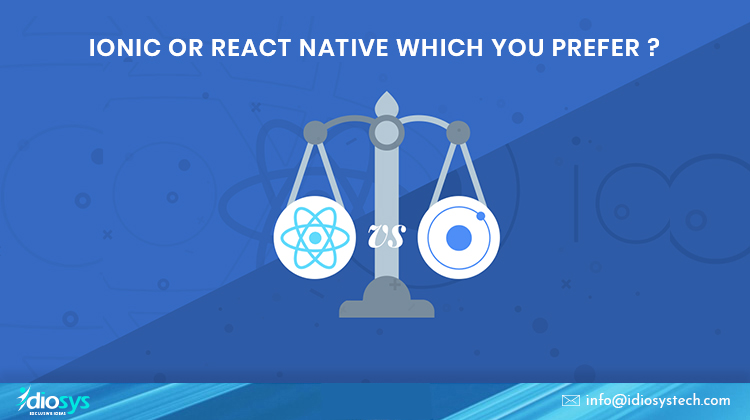
14 Jan, 2019
Today, mobile apps make the most popular and convenient platform used by millions of smartphone users worldwide. Be it in-built apps like contacts, messaging, security, gallery browser or the installable apps like banking, social networking, editing, news, gaming and entertainment, one would feel absolutely detached from the rest of the world without the access to the mobile apps. With the increased popularity of mobile apps worldwide, the demand for mobile app designing frameworks is rapidly changing with a huge transformation of the technique. Cross platforms are such examples of the technical development in mobile app designing framework, resulting into better convenience.
Cross platform mobile app framework helps creating mobile apps that can be used on multiple mobile operating systems. Among all the popular cross platform app developing frameworks today, Ionic and React Native are the two names that have gained recognition worldwide. In this tug of war between Ionic and React Native, this blog makes a close analysis between the structure, functionality, pros and cons of the two so that you are able to choose the most suitable one for your own project. So go ahead and explore the features of the best cross platform app frameworks and stay updated.
1. Ionic: Introduced in 2013 by Drifty Co., Ionic is an open-source platform mostly suitable for Hybrid App Development. Combining the specialties of Angular Js and Apache Cordova, Ionic is known for developing cross-platform apps that are high on performance when it comes to user interface. The best part of Ionic is perhaps it allows languages like HTML, CSS, and JavaScript, which are the most popular and convenient ones among the developers. Hybrid apps are developed using these languages. Incorporating a single and reusable code base, Ionic makes coding and programming simpler for all developers. Built with superior UI components, Ionic is appropriate for developing high end hybrid apps. However, Ionic requires both Cordova and PhoneGap to function. Developers who are most convenient with Angular will find coding very easy while working with Ionic. The latest version of Ionic is TypeScript ready and is compatible with Angular 2. Providing the developer a huge proportion of plugins that are pocket friendly, Ionic allows them to eliminate any third-party solutions. Moreover, with the help of Cordova plugins, one can find things easily in Ionic.
Pros: The pros of Ionic are –
* Integrated with PhoneGap and Cordova
* Allows TypeScript and RN for all platforms
* Hybrid app framework, platform-independent and flexible with languages like HTML, CSS, JS, or Angular
* Saves a lot of time and budget
Cons: The cons of Ionic are -
* Requires knowledge of RxJS
* Graphics or advanced interactive transitions can become difficult sometimes
2. React Native: Initiated in 2015, React Native was first applied to native iOS, Android, Universal Windows and iOS apps. Soon it became quite popular globally among the highly skilled developers for its advanced integration. React Native is configured with platform specific languages such as Objective C or Swift for iOS, Java and Android. In React Native, as the development process is based on Java Script, the codes are shared in different platforms by the programmers. Hence, while choosing React Native, one must consider that the development process is like the native frameworks and not like hybrid ones. A native framework is the one, which uses a single code base for various platforms. Yet, in React Native, the developer is not always allowed to use a single code in different platforms. When it comes to the promptness and over-all performance, Native React is trusted to be excellent. It also offers a Java Script library to the developers, making the development process user friendly. However, React Native doesn’t support HTML5, which is supported by most of the hybrid app frameworks.
Pros: The pros of React Native are –
* The developer can reuse the existing codes in React Native
* The framework platform independent and flexible in platforms like Android and iOS
* Consists a large community of developers that makes problem solving easy
* High on performance as compared to the other popular frameworks
Cons: The cons of React Native are –
* Requires more resource while developing apps for Android
* Demands more time and budget
Ionic vs. React Native:
In this tug of war between Ionic and React Native, the confusion makes it difficult for the beginners to opt for the suitable framework for a specific project. Hence, here is the analysis of the structure and performance of both the frameworks.
* Ionic is suitable for developing hybrid apps where as React Native is suitable for native platform apps.
* Ionic supports Java Script, HTML and CSS where as React Native supports platform specific language such as Objective-C for iOS and Java for Android.
* When it comes to the running speed of the apps, React Native delivers higher performance than Ionic.
* Testing is easier in Ionic as it can be processed in various browsers while React Native requires an emulator or a device.
* In Ionic, codes can be reused after the app launch while in React Native, codes need to be rewritten for different platforms.
* Ionic has some pre-designed styles where as React Native is packed with a special Hot Reload feature.
* The developer community of React Native is one of the most popular ones on Github. The developer family of Ionic is rapidly increasing.
Considering all the features described above, choosing between Ionic and React Native for your specific project is no more a hassle. For further guidance related to cross platform mobile app development, contacting an App Development Company or a skilled mobile app developer will be the best option.
We, as one of the most eminent brand development company across the nation, provide mobile app development service and marketing solutions to a huge number of multi-national and start-up companies. With the increasing popularity of the cross platform hybrid apps, our team of skilled app developers suggest Ionic framework, which is loaded with great features, user friendly, low on budget and yet high on performance. Contact us today to plan your mobile app launch!
YOU MAY ALSO READ :
NEED TO KNOW ABOUT SOME FEATURES OF LATEST OS- OREO?
IONIC FRAMEWORK – MOST PREFERABLE FOR HYBRID MOBILE APPS
PHONEGAP-PREFERABLE FOR CROSS-PLATFORM MOBILE APP DEVELOPMENT FRAMEWORK?

